North Africa
North Africa is a cultural subcontinent in the northern part of Africa. It is sometimes defined as extending from the shores of the Atlantic, from Morocco to the west, to the Suez Canal and to the Red Sea, in Egypt to the east. The most commonly accepted definition includes from East to West : Egypt, Sudan (sometimes included in East Africa), Libya, Tunisia, Algeria, Morocco, Western Sahara and Mauritania (often included in West Africa). The United States Census Bureau defines North Africa as Algeria, Libya, Egypt, Morocco and Tunisia. The countries of North Africa share a common ethnic, cultural and linguistic identity specific to this region, such as the language (Arabic), as well as religion (Islam). North Africa has been inhabited by Berbers since the beginning of history, while the eastern part of North Africa was home to the ancient Egyptians, who maintained close relations with the Berbers during antiquity. After the Muslim conquest in the 7th century, the region underwent an Arabization and Islamization process which has since redefined its cultural landscape. The distinction between North Africa and sub-Saharan Africa is historically and ecologically significant due to the natural barrier created by the Sahara Desert for much of modern history. North Africa is populated by Arabs and Berbers, while sub-Saharan Africa is populated by blacks. From 4000-3600 BC. AD, following the abrupt desertification of the Sahara due to gradual changes in Earth’s orbit, this barrier culturally separated the North from the rest of the continent. As the maritime civilizations of the Phoenicians, Greeks, Romans, Muslims and others facilitated communication and migration across the Mediterranean Sea, North African cultures were more closely linked to Southwest Asia and Europe than in sub-Saharan Africa. Islamic influence in the region is also significant, and North Africa is a major part of the Muslim world.
An increasing number of researchers have postulated that North Africa, rather than East Africa, served as a point of exit for modern humans who first left the continent during migration from Africa.
Etymology
North Africa is also called White Africa. This term contrasts with that of “black Africa”, designating sub-Saharan Africa. Georg Wilhelm Friedrich Hegel also called it “European Africa” while Elisha Reclus saw in North Africa an appendage of the Latin Arc. The expression white Africa referred either geographically to the north of the Sahara or, ethnically, to the “white” minorities of “black” Africa : Afrikaners in the south, Tuaregs in the Sahel.
Geography
The Atlas mountains extend over a large part of Morocco, northern Algeria and Tunisia, are part of the fold mountain system which also crosses much of southern Europe. They retreat to the south and east, becoming a steppe landscape before meeting the Sahara Desert, which covers more than 75% of the region. The sediments of the Sahara cover an ancient plateau of crystalline rock, some of which are more than four billion years old. South of the Atlas is the arid and desert expanse of the Sahara Desert, the largest sandy desert in the world. In places, the desert is cut by irregular rivers called wadis (or wadis) which do not run until after the precipitation but are generally dry. The main reliefs of the Sahara include ergs, large seas of sand which sometimes form immense dunes ; the hammada, a flat rocky plateau without soil or sand ; and the reg, a flat surface made up of gravel or small stones. The Sahara covers the southern part of Morocco, Algeria and Tunisia, and most of Libya. Only two regions of Libya are outside the desert : Tripolitania to the northwest and Cyrenaica to the northeast. Most of Egypt is also desert, with the exception of the Nile and the irrigated land along its banks. The Nile Valley forms a narrow fertile streak that spans the entire length of the country. The sheltered valleys in the Atlas Mountains, the Nile Valley and Delta, and the Mediterranean Sea are the main sources of fertile agricultural land. A wide variety of valuable crops, including grains, rice and cotton, and woods such as cedar and cork, are grown. Typical Mediterranean cultures, such as olive, figs, dates and citrus fruits, also thrive in these regions. The Nile Valley is particularly fertile, and most of the population in Egypt lives near the river. Elsewhere, irrigation is essential to improve crop yields on the margins of the desert.
North Africa’s countries
-
- Algeria
- Morocco
- Western Sahara
- Tunisia
- Libya
- Egypt
- Mauritania
-
Libya
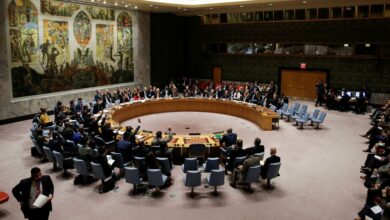
UN Envoy To Libya Says Proposed Electoral Laws Not Enough To Enable Election
The United Nations (UN) envoy to Libya, Abdoulaye Bathily, on Monday, said the electoral laws agreed by a committee of…
Read More » -
Tunisia
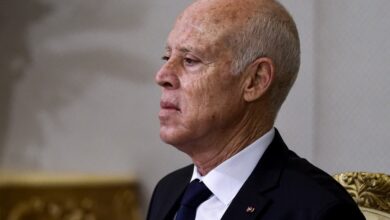
EU Considering Major Tunisia Aid Package To Boost Economy, Reduce Migrant Flows
The European Union (EU) Commission President Ursula von der Leyen on Sunday said the organization is considering offering over 1…
Read More » -
Egypt
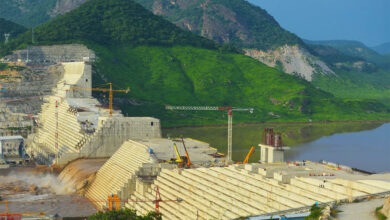
Egypt Confirms No Legally Binding Deal With Ethiopia On Nile Dam Filling
Egypt has rejected claims made by Ethiopia that an agreement has been reached on the period of filling of the…
Read More » -
Egypt
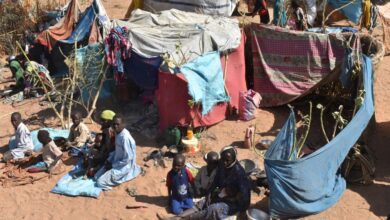
UN Emergency Fund Allocates $5 Mn To Help Egypt Shelter Sudanese Refugees
The United Nations (UN) Central Emergency Response Fund (CERF) on Monday announced that it has allocated $5 million for its…
Read More » -
Libya
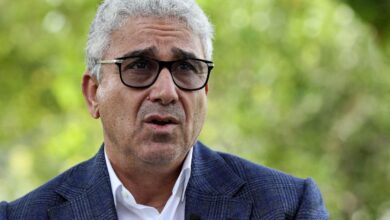
Libya’s Eastern-Based Parliament Suspends It’s Prime Minister Fathi Bashagha
Libya’s eastern-based parliament on Tuesday voted to replace its appointed Prime Minister Fathi Bashagha, the parliament spokesperson Abdullah Belhaiq confirmed,…
Read More » -
Egypt
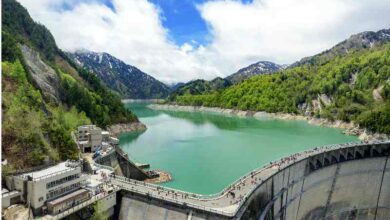
Ethiopian Foreign Ministry Ready To Resume Nile Dam Tripartite Negotiations
The Ethiopian Foreign Ministry has said that it is willing to resume tripartite negotiations with Egypt and Sudan to resolve…
Read More » -
Tunisia
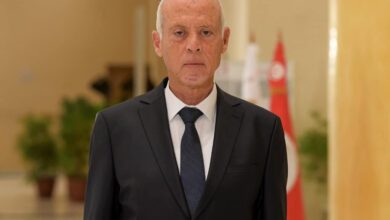
Tunisian President Kais Saied Rejects Terms Of $1.9 Billion IMF Bailout Package
Tunisian President Kais Saied on Thursday rejected the terms of a stalled $1.9 billion International Monetary Fund (IMF) bailout package,…
Read More » -
Libya
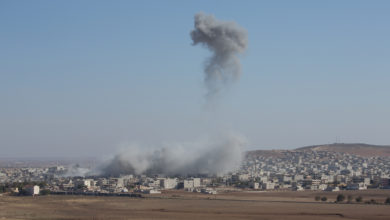
UNSMIL Warns Explosive Ordnance Left By Armed Conflict Poses Major Risk To Libyans
The United Nations Support Mission in Libya (UNSMIL) on Tuesday warned that explosive ordnances left by armed conflicts pose a…
Read More » -
Tunisia
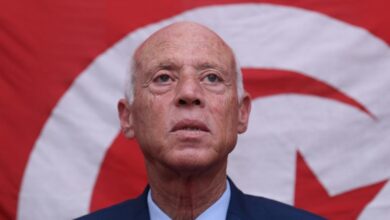
Tunisian President Saied Appears In New Video, Dismisses Speculations Over His Health
Tunisian President Kais Saied on Monday made an appearance in a video posted on his official Facebook page, dismissing all…
Read More » -
Algeria
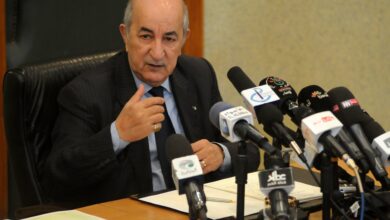
Algerian President Confirms Ambassador To Return To France In Coming Days
Algerian President Abdelmadjid Tebboune on Friday talked to his French counterpart Emmanuel Macron on phone and said that the country’s…
Read More » -
Libya
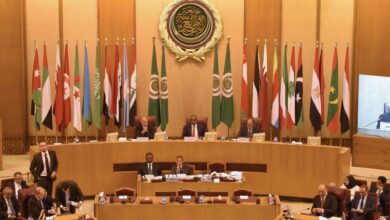
UN Libya Envoy Points To Alternatives If No Electoral Pact Is Finalized Soon
The United Nations (UN) envoy to Libya on Friday said if Libya’s legislative bodies fail to agree on electoral laws…
Read More » -
Tunisia

Tunisian President Appoints New Interior Minister After Charfeddine Resigns
Tunisian President Kais Saied on Friday appointed a new interior minister after Taoufik Charfeddine announced he is resigning from his…
Read More » -
Tunisia

Tunisian President Kais Saied Meets Newly Elected Parliament Speaker Bouderbala
Tunisian President Kais Saied on Tuesday met with Ibrahim Bouderbala, the new speaker of the parliament who was elected on…
Read More » -
Tunisia

Tunisian President Kais Saied To Dissolve Local Authorities In Latest Power Grab
Tunisian President Kais Saied on Thursday announced he has decided to dissolve the country’s elected municipal councils, months before they…
Read More » -
Tunisia

Tunisian President Denies Racism Accusations, Warns Perpetrators Of Legal Action
Tunisian President Kais Saied on Sunday denied racism accusations and warned perpetrators of racial attacks of legal consequences, reported Reuters.…
Read More » -
Tunisia
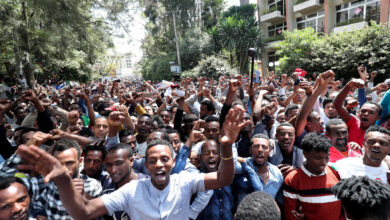
Tunisian Authorities Put A Ban On Opposition Coalition NSF Group’s Sunday Protest
Tunisian authorities on Thursday banned the National Salvation Front’s (NSF) upcoming protest scheduled on Sunday, reported The BBC. Despite the…
Read More » -
Libya

UN Special Representative To Libya To Launch New Effort To Break Political Stalemate
The United Nations (UN) special representative to Libya on Monday said he will launch a new initiative to enable elections…
Read More » -
Tunisia

Tunisian Protest Coalition Says It Will Hold New Protest Despite Recent Wave Of Arrest
A Tunisian anti-government protest coalition on Friday said it would continue to unite the opposition against President Kais Saied despite…
Read More » -
Tunisia

Tunisian President Saied Rejects Foreign Interference In Country’s Internal Matters
Tunisian President Kais Saied on Thursday rejected foreign interference in the internal affair of his country after facing criticism over…
Read More » -
Algeria
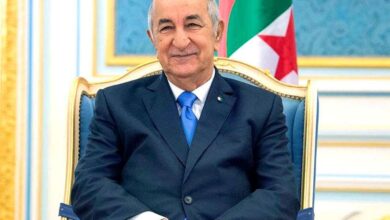
Algerian Government Recalls Ambassador To France For Immediate Consultation
The Algerian government on Wednesday announced its decision to recall its ambassador to France for immediate consultation, reported The BBC.…
Read More » -
Tunisia

Tunisia’s UGTT Chief Accuses President Saied Of Targeting Unions To Distract From Failures
Tunisia’s powerful UGTT trade union on Friday accused President Kais Saied of targeting it to distract attention from record low…
Read More » -
Libya
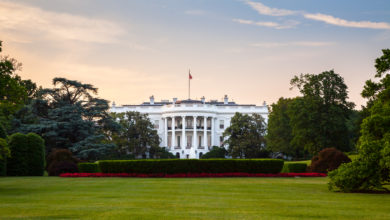
US Piles On Pressure On Allies To Expel Russia’s Wagner Mercenaries From Libya, Sudan
The United States (US) continues to pile on the pressure on Middle East ally countries to expel the Russia-based military…
Read More » -
Tunisia

Tunisian President Kais Saied Extends State Of Emergency Until End Of 2023
Tunisian President Kais Saied on Tuesday announced an extension of the state of emergency imposed across the country until the…
Read More » -
Libya

UN Human Rights Mission: Silence From Libyan Authorities No More Acceptable
The United Nations (UN) Human Rights Council on Monday urged the authorities in Libya to share more information on mass…
Read More » -
Tunisia

Tunisia’s Second Round Of Elections End With A Mere 11.3 Percent Voting Turnout
Tunisia’s second round of parliamentary elections ended on Sunday with provincial figures suggesting a mere 11.3% voter turnout reported The…
Read More »

